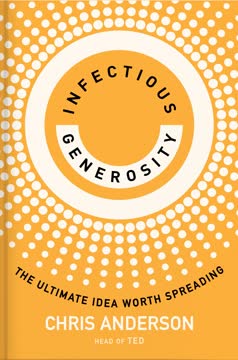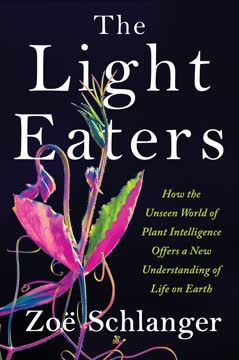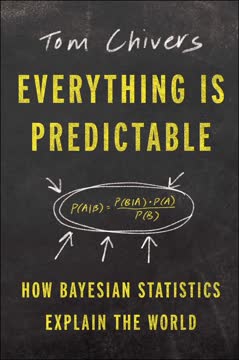Key Takeaways
1. Sustainability is achievable: We can be the first generation to live sustainably
Sustainability is humanity's North Star. Make sure current generations have opportunities for a good life, shrink our environmental impact so that future generations have the same (or better) opportunities, and let wildlife flourish alongside us.
Unprecedented progress. Over the last century, the world has made unparalleled advancements in improving living standards across the globe. Every country has seen improvements in health, education, nutrition, and other key indicators of well-being. While challenges remain, such as preventable diseases and hunger, many solutions are within reach.
Environmental turning point. The book focuses on seven major environmental problems and demonstrates that for each, we are either at or have passed the turning point towards a lower impact. These include:
- Air pollution
- Climate change
- Deforestation
- Food systems
- Biodiversity loss
- Ocean plastics
- Overfishing
Interconnected solutions. The interconnectedness of these problems means that solving one often contributes to solving others. For example, moving to renewable energy addresses both air pollution and climate change, while eating less beef improves climate, deforestation, land use, biodiversity, and water pollution issues.
2. Air pollution: A solvable problem with immediate health benefits
I am breathing the UK's cleanest air for centuries, if not millennia.
Rapid improvement possible. Air pollution, despite killing millions annually, is a solvable problem. Many countries have already dramatically reduced their air pollution levels. The solution is straightforward: stop burning things. This includes:
- Providing access to clean electricity for cooking and heating
- Stopping the burning of crops and fossil fuels
- Regulating industrial plants
- Focusing on clean public transport networks
Quick results. Changes can happen rapidly, as demonstrated by China, which nearly halved its air pollution in just seven years. Other countries may not be as fast, but significant reductions in air pollution are achievable within decades.
Leapfrogging opportunity. As clean energy becomes cheaper, poorer countries have the opportunity to skip the polluting stages of development and move directly to cleaner technologies, making air pollution reduction even more achievable globally.
3. Climate change: Rapid progress in renewable energy and electric vehicles
Soon the low-carbon pathway will be the cheap one.
Technological breakthroughs. The fight against climate change has seen significant advancements in recent years:
- Renewable energy prices have plummeted
- Battery technology has improved dramatically
- Electric vehicles are becoming more affordable and widespread
Economic shift. These developments are changing the economic landscape. Low-carbon options are increasingly becoming the cheaper choice, eliminating the historical trade-off between economic growth and environmental protection.
Global opportunity. This shift presents a unique opportunity for developing countries to pursue economic growth without relying heavily on fossil fuels. The author predicts that by mid-century, the energy landscape will be unrecognizable compared to today, with clean energy dominating the market.
4. Deforestation: Global rates are falling, and we can end it by 2030
Global deforestation peaked in the 1980s, has now also peaked in our most precious forests such as the Amazon, and many emerging economies have committed to ending deforestation by 2030.
Historical context. Deforestation has been a long-standing issue, driven by the need for firewood, building materials, and agricultural land. However, the situation is improving:
- Global deforestation rates peaked in the 1980s
- Even in crucial areas like the Amazon, deforestation rates are declining
- Many emerging economies have committed to ending deforestation by 2030
Agricultural innovation. The key to reducing deforestation lies in agricultural innovation. Crop yields have increased dramatically in the last century, allowing more food production without needing more land.
Future prospects. With continued investment in productive crops and better food choices, deforestation can be halted entirely in the coming decades. This opens the possibility of reforestation and the return of previously lost forest areas.
5. Food systems: Feeding 10 billion sustainably is possible
Everyone in the world can be well fed on a planet that isn't eating itself alive.
Current inefficiencies. Despite producing enough food to feed the world's population twice over, hunger persists due to inefficient use of resources:
- Feeding livestock
- Using crops for biofuels
- Food waste
Technological solutions. Emerging technologies are changing food production:
- Plant-based meat alternatives
- Lab-grown meat
- More efficient farming techniques
Future vision. The author envisions a future where:
- We use significantly less land for food production
- Fewer animals are raised and slaughtered for food
- Everyone has access to nutritious food
- The environmental impact of food production is greatly reduced
6. Biodiversity: We're not heading for a Sixth Mass Extinction
Tackling biodiversity loss on its own might seem impossible, but we won't tackle it in isolation; we'll get most of the way there by fixing the other problems.
Historical context. Humans have long been in conflict with other species, either through hunting or competition for space. Today, wildlife faces multiple threats:
- Climate change
- Deforestation
- Nutrient pollution from farming
- Competition with livestock
- Plastics
- Ocean acidification
- Overfishing
Interconnected solutions. The good news is that addressing other environmental issues will significantly benefit biodiversity:
- Reducing climate change
- Stopping deforestation
- Improving farming practices
- Reducing plastic pollution
- Better managing fisheries
Positive outlook. By addressing these interconnected issues over the next few decades, we can see a significant turnaround in wildlife populations, ending the long-standing conflict between humans and other species.
7. Ocean plastics: A tractable problem with simple solutions
Invest in waste-management systems and we could stop this.
Scale of the problem. Approximately 1 million tonnes of plastic flow into the ocean every year. However, this represents only about 0.3% of global plastic waste.
Simple solutions. The problem is highly solvable through basic infrastructure investments:
- Improved waste management systems
- Better landfills
- More recycling centers
Global responsibility. Most plastic pollution now comes from low- and middle-income countries. Rich countries, as manufacturers and trade partners, have a responsibility to help these countries prioritize waste management infrastructure.
Rapid resolution possible. With proper focus and investment, plastic pollution could be solved much faster than many other environmental problems – potentially within a decade or two.
8. Overfishing: Fish stocks can recover with proper management
It only took a decade or two for these species to stage their comeback. We can do it at this pace – or faster – everywhere.
Historical context. Overfishing became a significant problem as fishing technology improved and demand increased. However, progress is being made:
- Rates of overfishing have slowed globally
- Fish farms now produce more fish than wild catch, reducing pressure on wild stocks
- Some regions have seen iconic fish species recover
Key to recovery. Proper management of fish stocks is crucial:
- Accurate monitoring of fish populations
- Setting and enforcing sustainable catch quotas
- Regulating fishing methods to reduce bycatch
Future prospects. With proper management techniques applied globally, fish stocks could recover relatively quickly – within a decade or two in many cases.
9. Effective environmentalism may feel counterintuitive
Being an effective environmentalist has often made me feel like a fraud.
Common misconceptions. Many environmentally-friendly actions are counterintuitive:
- Local food isn't always better for the environment
- Organic farming often has a higher carbon footprint
- Packaging can reduce food waste and have a lower overall environmental impact
Natural fallacy. People often assume that "natural" equals good and "unnatural" equals bad. This leads to skepticism about synthetic or technological solutions that may actually be more environmentally friendly.
Changing perceptions. To make progress, societal perceptions of sustainability need to change. Solutions like lab-grown meat, dense cities, and nuclear energy need to be rebranded as sustainable options. Aligning effective environmental actions with public perception is crucial for widespread adoption.
10. Systemic change, not just individual actions, is key to solving environmental problems
We need to change political and economic incentives.
Limits of individual action. The COVID-19 pandemic demonstrated that even drastic changes in individual behavior (lockdowns, reduced travel) only led to a 5% reduction in global CO2 emissions. This highlights the need for larger systemic changes.
Key areas for impact. Individuals can contribute to systemic change in three main ways:
- Political engagement: Voting for leaders who support sustainable policies
- Economic choices: Purchasing sustainable products to signal market demand
- Time and resource allocation: Supporting innovation, donating to effective causes, or working on environmental solutions
Accelerating change. By focusing on these areas, individuals can help drive the systemic and technological changes necessary for rapid environmental progress. This approach can be far more impactful than focusing solely on personal lifestyle changes.
Last updated:
FAQ
What's Not the End of the World about?
- Focus on Sustainability: The book explores how humanity can achieve sustainability for the first time by addressing interconnected environmental issues like climate change, biodiversity loss, and food production.
- Environmental Challenges: It delves into major crises such as air pollution, deforestation, and ocean plastics, providing historical context, current states, and potential solutions.
- Optimism and Action: Hannah Ritchie promotes cautious optimism, suggesting that while challenges are significant, they are solvable with the right actions and technologies.
Why should I read Not the End of the World?
- Empowering Perspective: The book counters doomsday narratives with a refreshing take on environmental issues, empowering readers to take meaningful action.
- Evidence-Based Solutions: It offers insights into progress made in areas like reducing child mortality, encouraging a balanced view of potential positive change.
- Practical Advice: Ritchie provides actionable advice for individuals to contribute to sustainability, making it a practical guide for daily life.
What are the key takeaways of Not the End of the World?
- Sustainability is Achievable: Achieving sustainability is possible if we work together and focus on the right solutions, leaving the planet better for future generations.
- Interconnected Environmental Issues: Understanding the connections between issues like food production and climate change is crucial for effective solutions.
- Importance of Optimism: "Urgent optimism" is needed to motivate action rather than succumbing to despair.
How does Not the End of the World address climate change?
- Human Impact: The book discusses how human activities, especially fossil fuel burning and deforestation, drive climate change, emphasizing emission reduction.
- Cautious Optimism: While likely to exceed the 1.5°C target, Ritchie suggests aiming to limit warming to around 2°C with concerted efforts.
- Technological Solutions: New technologies and renewable energy sources are highlighted as feasible solutions for transitioning to a low-carbon economy.
What are the main environmental crises discussed in Not the End of the World?
- Air Pollution: Identified as a major killer, the book discusses the need for cleaner air and potential improvements.
- Deforestation: The ongoing issue, particularly in the Amazon, impacts biodiversity and climate change, requiring sustainable practices.
- Biodiversity Loss: Alarming rates of biodiversity loss are interconnected with other challenges, emphasizing wildlife and habitat protection.
How does Not the End of the World suggest we can achieve sustainability?
- Focus on Solutions: Emphasizes practical solutions over despair, outlining specific actions for individuals and societies.
- Interconnected Approaches: Advocates addressing multiple issues simultaneously, recognizing their interconnected nature.
- Collective Action: Stresses the importance of collaboration across generations and sectors to create a sustainable future.
What role does food production play in environmental sustainability according to Not the End of the World?
- Major Contributor: Food production accounts for about one-quarter of global greenhouse gas emissions, making it critical for intervention.
- Inefficient Practices: Current systems lead to waste and inefficiency, particularly in livestock production, needing a shift to plant-based diets.
- Potential for Improvement: Improving agricultural practices and reducing food waste can significantly lower emissions.
How does Not the End of the World propose to tackle air pollution?
- Stop Burning Fuels: Transitioning to cleaner energy sources is essential for reducing air pollution.
- Policy and Regulation: Strong policies and regulations are crucial, with successful examples from countries like China.
- Public Awareness: Raising awareness about health impacts can drive demand for cleaner air initiatives.
What specific methods does Ritchie recommend for sustainable eating?
- Meat Substitutes: Encourages plant-based meat alternatives with lower carbon footprints, citing companies like Impossible Foods.
- Hybrid Burgers: Blending beef with plant-based proteins can reduce environmental impact while satisfying meat lovers.
- Diverse Diets: Incorporating a variety of plant-based foods meets nutritional needs while minimizing environmental impact.
What does Ritchie say about the impact of food waste?
- Significant Issue: Around one-third of the world’s food goes to waste, contributing to emissions and resource squandering.
- Behavioral Changes: Practical strategies include buying only what you need and opting for "ugly" produce.
- Supply Chain Improvements: Better storage and transportation methods can reduce waste, especially in developing countries.
How does Ritchie suggest we can protect biodiversity?
- Reduce Meat Consumption: Livestock farming drives biodiversity loss; eating less meat helps preserve ecosystems.
- Support Conservation Efforts: Encourages supporting policies and initiatives that protect habitats and endangered species.
- Promote Sustainable Agriculture: Improving practices like agroforestry and organic farming can enhance biodiversity.
What role does technology play in achieving sustainability according to Ritchie?
- Innovative Solutions: Advancements like lab-grown meat and precision agriculture address environmental challenges.
- Data-Driven Decisions: Data is crucial for understanding and managing issues, informing better policies and practices.
- Collaboration and Investment: Calls for collaboration and investment in research and development for sustainable solutions.
Review Summary
Not the End of the World receives mixed reviews. Many praise its data-driven, optimistic approach to environmental issues, finding it refreshing and motivating. Readers appreciate Ritchie's accessible writing and debunking of common misconceptions. However, some criticize the book for oversimplification, cherry-picking data, and downplaying the urgency of climate change. Critics argue it may promote complacency and lacks nuanced analysis of political and economic factors. Despite disagreements, most reviewers acknowledge the book's value in providing a hopeful perspective on global environmental challenges.
Similar Books









Download PDF
Download EPUB
.epub digital book format is ideal for reading ebooks on phones, tablets, and e-readers.




